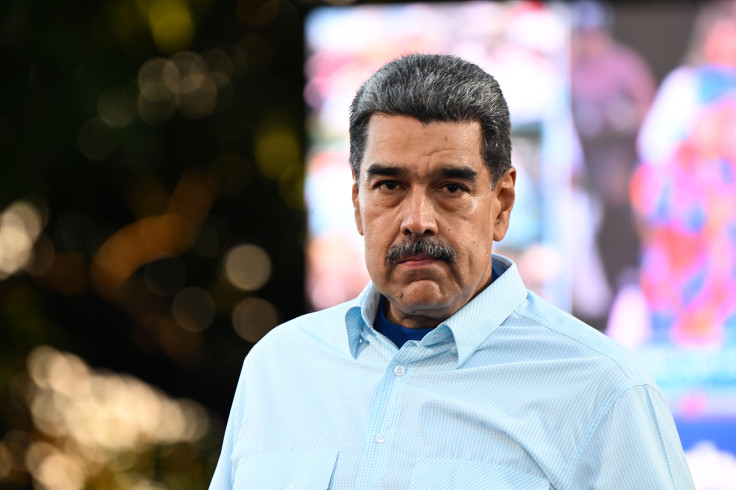
The Israel-Hamas war has dominated the global conversation over the past year, with practically all political actors across the world weighing on a conflict that has continued to escalate and threatens to become a regional war.
Latin American leaders are not exempt from this, and many have taken clear stances even if many countries in the region do not have particularly close ties with Israel or Iran and the militias it backs throughout the region and have engaged with the IDF.
Several of them have taken a stance that is much closer to Iran and its allies, accusing Israel of committing a genocide in Gaza and refraining from criticizing the attacks on its population. Cuba, Nicaragua, Venezuela, Colombia and Bolivia fit this description, with Chile and Mexico not far behind. In contrast, Argentina has firmly stood by Israel.
Here's a brief recap of where the different leaders stand and those who have taken the strongest positions regarding the conflict:
Cuba
The government in Havana avoided condemning the October 7 attacks by Hamas on Israel, instead expressing concern for the escalation it catalyzed and saying that the conflict is "consequence of 75 years of permanent violations of Palestinian rights and Israel's expansionist, aggressive policies."
The country has also joined others in formally accusing Israel of genocide before the International Court of Justice (ICJ). The country backed a presentation by South Africa and argued that, "with the complicity of the United States," Israel "ignores its obligations as occupying power."
More recently, Cuba also decried the killing of Hezbollah leader Hassan Nasrallah in an Israeli airstrike, saying it "seriously threatens peace and regional security."
Venezuela
The Maduro regime has taken a similar stance, openly clashing with the Israeli government and calling its actions in Gaza a genocide. Its officials backed Iran's recent attack with almost 200 ballistic missiles to Israel, saying they were an act of legitimate self-defense and an answer to the "threats and crimes against humanity committed by the Netanyahu regime against Palestine, Lebanon and the Iranian people."
"The Venezuelan government urges the international community to stop the genocide against the Palestinian and Lebanese people, as well as the race to take control of the region by Israel and the United States," said Foreign Minister Yvan Gil.
Venezuela also decried the killing of Nasrallah, with Maduro expressing his "solidarity with Hezbollah." He also called him a "leader of the Muslim world" and called "the people of the world, the Muslim and Arabic people to raise their voice in solidarity with the Palestinian and Lebanese people."
Colombia
Colombian President Gustavo Petro has been among the most vocal critics of Israel, quickly labeling its prosecution of the war a genocide and cutting diplomatic ties with the country in May of this year. Hamas described the actions as a "victory" and said it "greatly appreciates his position, a victory resulting from the sacrifices of our people and our just cause."
He also posted a picture with American First Lady Jill Biden this week, saying he told her that "after Iran bombed military targets the U.S. shouldn't pick a side but immediately establish the conditions to a regional peace conference."
En la cena de posesión de la presidenta de México, fue mi vecina, Jill Biden, esposa del presidente de EEUU.
— Gustavo Petro (@petrogustavo) October 2, 2024
Profesora de ingles y demócrata. Le dije que después del bombardeo a objetivos militares por parte de Irán, EEUU no debería aliarse con un bando, sino establecer de… pic.twitter.com/6A4rHDOyqN
Nicaragua
Nicaragua's Daniel Ortega has also described the actions as a genocide and formally requested the ICJ to order Germany suspend its aid to Israel. Speaking at the UN General Assembly, Nicaraguan Foreign Minister Valdrack Jaentschke further denounced Israel and its allies' "genocide against the glorious Palestinians, the brave Lebanese and so many other brave people who don't bend to brutality."
Bolivia
Led by President Luis Arce, Bolivia cut diplomatic ties with Israel. The latter then accused Bolivia of "surrendering to terrorism and the regime of the ayatollahs." "Israel condemns Bolivia's support to terrorists and its capitulation to the Iranian regime," the country said after the decision was announced. Bolivia had already cut ties with Israel before under Evo Morales. They had been briefly restored during the presidency of Jeanine Áñez.
Chile
Santiago has been highly critical of Israel, backing South Africa's accusation of genocide before the ICJ and recalling its ambassador from the country. However, it also recently condemned Iran's attack on the country, calling it "indiscriminate" and calling all parties to de-escalate. The Israeli ambassador to Chile highlighted the announcement, saying it was a "clear and positive message."
Brazil
The Lula da Silva administration recalled its ambassador to Israel in May this year amid tensions between the two governments. The president has also accused Israel of committing genocide in Gaza and has urged a UN court to declare the illegality of settlements in the West Bank.
Mexico
The López Obrador administration also requested to join the case before the ICJ. The country has taken a more nuanced position, saying that "taking sides wouldn't help what we should care about the most, which is stopping the war and preventing more killings in Gaza."
Argentina
Argentine President Javier Milei has been a steadfast ally of Israel, vehemently supporting its right to self-defense. Israeli officials have thanked Milei for his condemnation of Iran, President Isaac Herzog among them.
Paraguay
Paraguay has also formally backed israel, with President Santiago Peña saying the country has his administration's "full support." "In these difficult times we express our full support to the people of Israel and we express our concern about the escalating violence in the region," Peña said in April after Iran launched a barrage of some 300 missiles and drones to the country.
© 2025 Latin Times. All rights reserved. Do not reproduce without permission.





